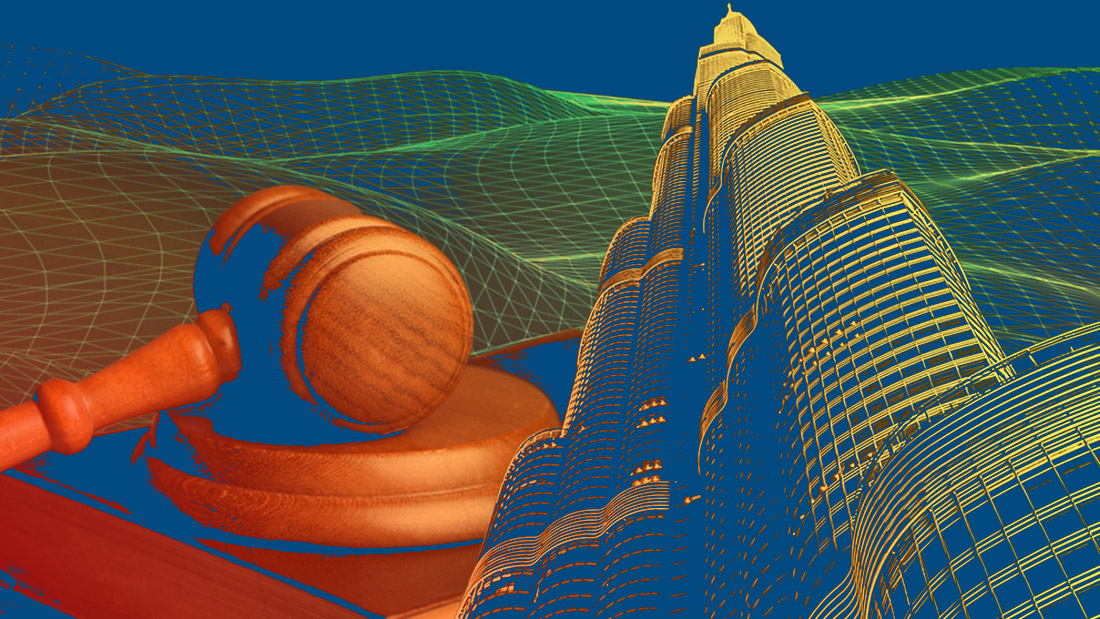
Irina Heaver, a crypto lawyer based in the Middle East, authored the following guest post.
2022 was an eventful year for the Web3 Founders, crypto lawyers, and Financial Regulators. The industry witnessed multiple bankruptcies and allegations of fraud that would make Madoff look like an angel. Some of the highest-profile influencers and sports stars were pursued by Regulators for illegal promotions of tokens. A developer of an open software code was jailed, and a DAO sued.
I have been practicing law for 20 years, and this was way too much regulatory action in one year if you ask me.
However, a few things are now certain. The Regulators will come after Web3 and crypto projects with a vengeance, and the days of hiding out in offshore jurisdictions happily avoiding them are well and truly over.
Smart Founders, with a long-term view, now realize that to raise funds from Tier1 Funds and to openly onboard users, their projects must meet certain regulatory requirements to the extent currently possible.
As such, several countries worldwide have openly declared the ambition to lead the regulatory efforts in the Web3 and crypto space to provide the desired certainty for consumers, founders and investors.
The United Arab Emirates is certainly leading the way, offering ample choice of Economic and Financial Free Zones, enticing the Founders with ‘crypto licenses’ of various shapes and sizes.
Let us examine UAE’s jurisdictional choices for Web3 and Crypto Founders and Investors.
Financial Regulation in the UAE
Financial regulators regulate financial services activities in the UAE. So, suppose your Web3 project incorporates traditional financial activities such as banking, brokerage, custody, payment services, or investment management. In that case, you would likely fall under the jurisdiction of a Financial Regulator in the UAE.
Corporate Jurisdictions in the UAE:
- Mainland or Onshore – those companies registered with the Economic Department in one of the 7 Emirates, Le. Dubai Economic Department (DED), Abu Dhabi Department of Economic Development (ADDED).
- Economic Free Zones – there are over 40 free zones in the UAE, with over 30 in Dubai alone.
- DMCC is the most prominent one, with their flagship Crypto Centre that now hosts over 500 crypto and web3 companies.
- Financial Free Zones – there are two Financial Free Zones, Abu Dhabi Global Markets (ADGM) and Dubai International Financial Centre (DIFC).
- Offshore Jurisdiction – Two Economic Free Zones offer Offshore Jurisdiction for incorporation, Jebel Ali Free Zone and RAK International Corporate Centre.
There are two financial regulators in the UAE ‘mainland’ or ‘onshore’:
- (a) the Emirates Securities & Commodities Authority (ESCA), which regulates the issue of securities in the mainland UAE as well as the UAE free zones (except for the Financial Free Zones: DIFC and the ADGM);
- (b) the UAE Central Bank is the supervisory and regulatory authority of the banking and insurance sector activities in the UAE.
There are two specialized Financial Free Zones in the UAE with their own Financial Regulators:
(a) the Dubai Financial Services Authority (DFSA), which regulates financial activities in the Dubai International Financial Centre (DIFC), a financial free zone in Dubai that is independent of onshore UAE; and
(b) the Financial Services Regulatory Authority (FSRA) regulates financial activities in the Abu Dhabi Global Market (ADGM) a financial-free zone in Abu Dhabi that is independent of onshore UAE.
In addition to the mainland jurisdiction and the two Financial Free Zones, the UAE has over 40 Economic Free Zones. Each has various degrees of autonomy when licensing various business activities.
And to confuse those still paying attention, two of the Economic Free Zones offer Offshore Jurisdictions for incorporating legal structures suitable for family trusts and foundations.
In the UAE, when a company is incorporated, it is issued with a Trade License, which is a misleading term and should be called a ‘Company Formation Document’ in English to reflect its nature.
It is sometimes referred to as a ‘license’ in short and often confused with the Regulatory approval and supervision afforded by a Financial Regulator. You would often hear from a novice, “my Web3 VC Fund has a license from the Airport Free Zone”. First, the Airport Free Zone is not a Financial Regulator and cannot issue licenses for venture funds. Secondly, you have a ‘Company Formation Document’ with some ‘business activity’ loosely similar to an investment activity.
This point is important for Investors to understand and not to be misled that they are investing in a regulated entity when it is not.
Crypto Regulations in the UAE
The ESCA has issued Decision No. 23 of 2020 concerning the Crypto Assets Activities Regulation (the Crypto Asset Regulations), which aims to regulate the offering, issuing, listing, and trading of crypto assets in the UAE and related financial activities.
The Crypto Asset Regulation is not in force yet, as informed by ESCA following our recent conversation with them.
VARA
Two years later, on 9 March 2022, Dubai Law No. 4 of 2022, Concerning the Regulation of Virtual Assets, established a brand-new Dubai Regulator called Virtual Asset Regulatory Authority (VARA). VARA’s remit includes regulation of Virtual Assets Service Providers (i.e., a crypto exchange, a crypto VC fund, NFT platform, etc.) across the Emirate of Dubai only, except for the DIFC, which is a Financial Free Zone with its own Financial Regulator.
VARA has yet to publish its regulations based on which they will regulate any such Virtual Assets Service Providers. However, they have already issued multiple MVP approvals. The most noteworthy one was issued to the infamous FTX.
ADGM
The Financial Services and Markets Regulations 2015 (FSMR) establishes the legislative and regulatory framework for financial services in ADGM. In 2018, the ADGM amended the FSMR to regulate ‘crypto activities”. Multiple companies were given licenses to operate a crypto exchange or a crypto custody service, the most significant being Binance Custody.
Great Jurisdiction for:
- Regulated Web3 VC funds
- Crypto Custody Providers
- Holding Companies investing in the equity of Web3 projects
DIFC
The Dubai Financial Services Authority (DFSA) has recently implemented the ‘crypto token regime’ in the DIFC.
The Crypto Token Regime has extended the scope of many existing financial services activities to apply to the provision of products and services in relation to ‘crypto tokens’. They then limited the use of Crypto Tokens to those “recognized” by the DFSA. Currently, DFSA recognizes as crypto tokens – Bitcoin, Ethereum, and Litecoin.
Utility and non-fungible tokens (NFTs) are specifically excluded from financial regulation. My favorite privacy coins (cause privacy is a human right) are prohibited in DIFC.
Also, who will tell DIFC that bitcoin is not a crypto token? Not me.
Great Jurisdiction for:
- Regulated hedge funds investing in crypto
- Family Offices
- Traditional financial services activities, including advising on investments, dealing/arranging investments, trading and custody, extended to include some very limited crypto activities
- Anyone thinking that bitcoin is a crypto token
Economic Free Zones
There are 3 non-financial Economic Free Zones that have recently started the formation of non-financial companies with a crypto-related business activity, announced ‘crypto centers’ and entered into MOU of undisclosed content with ESCA:
- DMCC- Dubai Multi Commodities Centre
- DWTC – Dubai World Trade Center
- IFZA – International Free Zone Authority
The above economic free zones are in friendly commercial competition with each other announcing various partnerships with leading web3 and crypto projects and are otherwise busy with marketing activities.
DMCC is a very interesting use case; they established a thriving Crypto Center with over 500 companies already registered, all thanks to the leadership of HE Ahmed Bin Sulayem, the Executive Chairman and Mr. Gustavo Figueroa, Head of the Crypto Center.
If you want to be a part of a vibrant crypto community, DMCC Crypto Center could be your option.
Great Jurisdiction for:
- Launching a Web3, Metaverse or NFT Project
- A personal Holding Company to manage own crypto holdings or investments for seasoned crypto entrepreneurs and HNWI
- Single Family Office
With the perfect weather 9 months out of 12, tax-free living, political stability, and perfect infrastructure for family and business life, it is not surprising that the UAE is becoming the preferred jurisdiction for Web3 and Crypto Founders.
However, there are still a few activities for which the UAE is not a suitable jurisdiction, namely launching utility tokens. In such a case, corporate structuring is required where the token is launched in a suitable jurisdiction elsewhere, accompanied by a legal opinion that the token is a utility token and falls outside of the financial services regulations. The same applies to governance tokens when structuring a Decentralized Autonomous Organization.
In the above-mentioned cases, a well-structured investor-ready project would structure the token issuance in a different jurisdiction while still having the UAE presence and taking advantage of everything the correct UAE jurisdiction offers.
Ahlan wa Sahlan, welcome to the UAE!
Credit: Source link
































